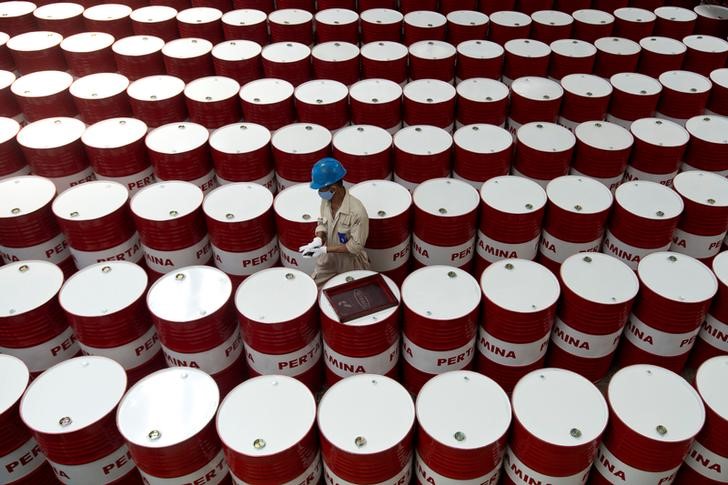JPMorgan prepares investors for oil prices at $50 "or below"
- April 7, 2025
- Category: Futures

Investing.com -- Oil prices could fall to $50 per barrel or even lower, as global supply continues to outpace demand and the U.S. administration prioritizes lower energy costs, JPMorgan strategists warned.
The Wall Street bank expects oil markets to remain in surplus through 2026, with Brent prices averaging $73 in 2025 and dropping to $61 in 2026.
It forecasts Brent to end this year at $64 and fall below $60 by the end of 2026, assuming Saudi Arabia and Russia hold production steady under the current OPEC+ agreement.
The outlook reflects both fundamental market conditions and political signals from Washington.
“President Trump’s administration has indicated a strong preference for reducing crude prices to $50/bbl or lower,” commodities strategists Natasha Kaneva and Prateek Kedia noted.
This objective is seen as critical for containing inflation and potentially advancing geopolitical goals, including the situation in Ukraine.
The report also highlights that the administration is willing to endure a “period of industry disruption” to achieve lower oil prices, similar to the 2014 OPEC-shale standoff.
Key officials, including Treasury Secretary Scott Bessent and Energy Secretary Chris Wright, support the price reduction agenda, alongside White House economic adviser Stephen Miran, whose policy roadmap calls for inflation-suppressing supply-side reforms.
JPMorgan believes that market surpluses alone may help the administration reach its goals without direct intervention.
For 2025, the bank projects a 1.3 million barrel per day surplus. First-quarter prices have tracked closely with forecasts, averaging $74.98 per barrel, in line with JPMorgan’s estimate of $74. Still, the bank warns that prolonged low prices may become unsustainable for some producers.
“Low volumes at low prices are unsustainable and we anticipate that increasing oil production may become a key consideration for some OPEC members,” it said.
Despite the current policy landscape and economic uncertainties tied to global tariffs and potential recession risks, JPMorgan is not adjusting its price outlook yet, opting to monitor the policy rollout and market reaction before.

